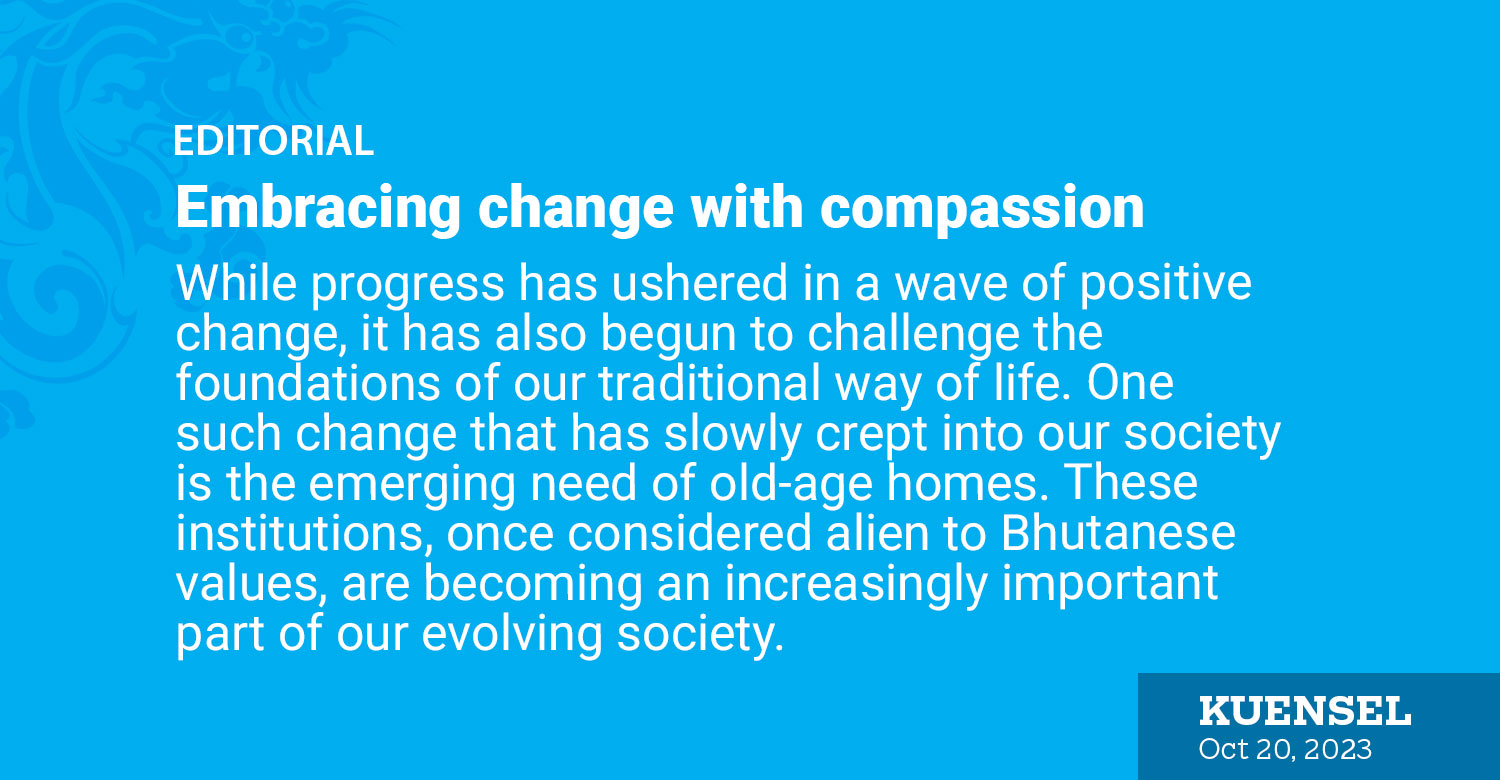While progress has ushered in a wave of positive change, it has also begun to challenge the foundations of our traditional way of life. One such change that has slowly crept into our society is the emerging need of old-age homes. These institutions, once considered alien to Bhutanese values, are becoming an increasingly important part of our evolving society.
The reluctance to accept old-age homes in Bhutan stems from our deeply rooted values of filial piety and respect for our elders. For generations, it has been ingrained in our hearts and minds that caring for our aging parents and grandparents is not merely a duty but a sacred responsibility. However, we cannot overlook the economic pressures and the swift pace of modernisation, which are posing significant challenges to the traditional family structure.
Goensho Tshamkhang is a testament to the compassionate heart of His Majesty the King. This establishment, a pioneer in the field of elderly care in Bhutan, has set an inspiring example of providing holistic care for the elderly, while preserving our cultural values. It is a heartwarming reminder that modernisation can coexist with our cherished traditions.
But let us not be naive. The economic pressures of the modern world will inevitably push us toward an uncertain future where more elderly members of our society might be left on the fringes without the care and support they deserve. The elderly, who have spent their entire lives nurturing our communities, are not expendable. Their wisdom, their love, and their presence are invaluable treasures that must be protected.
It is imperative, therefore, that we confront the fact that we will need more old-age homes in the near future. Rather than viewing this as a compromise on our values, we should embrace it as an opportunity to uphold the principles of compassion and respect that our culture so highly esteems.
To build these homes in a way that suits the unique needs of our society is crucially important. The old-age homes of Bhutan should not simply replicate Western models but should be tailored to our specific cultural and social norms. In designing these homes, we must ensure that they are comfortable, respectful, and nurturing environments, where our elderly can live out their golden years in dignity and comfort.
These homes should not be seen as a replacement for family care, but as an extension of it. The responsibility of caring for our elders should remain a cherished family duty, with old-age homes serving as a backup when circumstances require it. Let us remember that these institutions are not a sign of abandonment but an embodiment of our collective commitment to the well-being of our seniors.
The need for more old-age homes is not a sign of cultural erosion, but rather a call for cultural adaptation. Bhutan’s evolution is a testament to our resilience, and as we journey into the future, we must adapt to the changing dynamics of our society without losing sight of our values. Old-age homes can be bridges that connect our rich heritage with the demands of modern life.
As Bhutan transforms with the passage of time, we must face the reality that old-age homes are no longer an alien concept.


